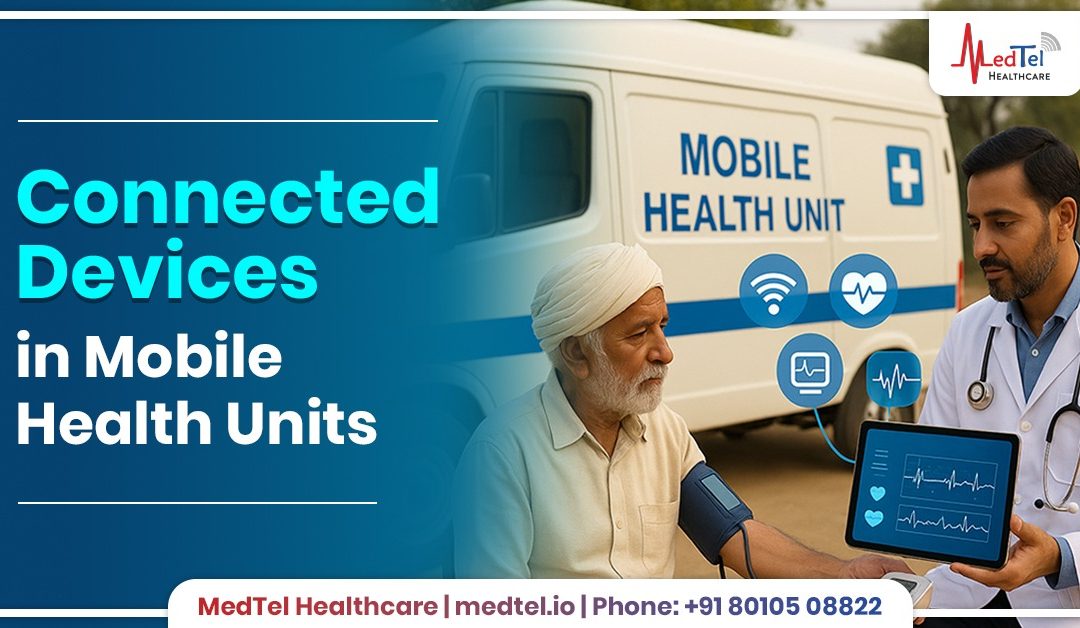Mobile Health Units (MHUs) have become a vital component of India’s healthcare delivery system, especially for rural and remote populations who often face barriers accessing traditional healthcare facilities. The integration of connected devices into MHUs is revolutionizing how healthcare is delivered on the move, making it more efficient, timely, and patient-centric.
MHUs equipped with connected diagnostic devices such as digital blood pressure monitors, glucometers, portable ECG machines, and pulse oximeters enable healthcare workers to collect real-time health data during outreach visits. These devices are often linked to mobile applications or cloud platforms via cellular networks, allowing instant transmission of patient data to centralized health databases or remote specialists. This connectivity ensures that healthcare providers can monitor patient vitals remotely, receive expert guidance, and make informed decisions quickly.
One of the key advantages of connected devices in MHUs is the ability to provide continuous care for chronic conditions like diabetes, hypertension, and cardiovascular diseases. Patients who previously had to travel long distances for follow-up visits can now be monitored regularly in their villages, reducing travel costs and improving compliance. Moreover, connected devices help in early detection of health issues during community visits, enabling timely referrals to higher-level facilities when necessary.
India’s vast rural geography and limited healthcare infrastructure make MHUs with connected devices an ideal solution to bridge the healthcare gap. The Ministry of Health and Family Welfare, along with various NGOs, are actively promoting the deployment of smart MHUs that leverage IoT and telemedicine technologies. These units also play a crucial role during health emergencies and outbreaks by facilitating rapid screening and data collection.
Training healthcare workers to use these devices effectively is critical. User-friendly interfaces and local language support in mobile apps enhance adoption and accuracy of data collection. Additionally, data security and patient privacy protocols are being strengthened to ensure trust in digital health solutions.
In summary, connected devices in Mobile Health Units are transforming rural healthcare in India by enabling real-time diagnostics, remote monitoring, and seamless communication between patients and providers. This technology-driven approach not only improves access but also enhances the quality of care, making healthcare more inclusive and responsive to the needs of underserved populations.
